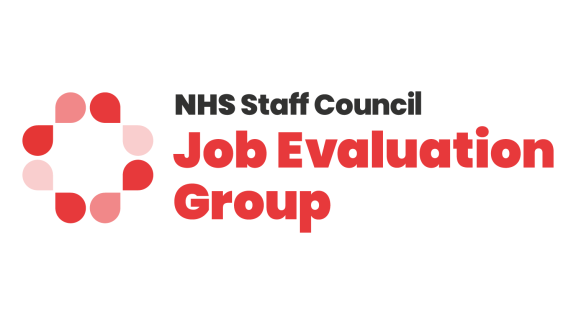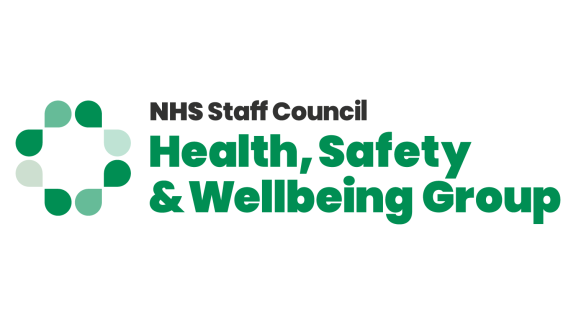Framework agreement for 2018 pay deal

Read the framework agreement reached by the NHS Staff Council which outlines the detail of the 2018 three-year pay deal for staff under the NHS terms and conditions of service.
1. To help the NHS attract and recruit new staff
1.1. Starting salaries across all pay bands will increase as outlined in Annex A.
1.2. The increases to starting salaries are achieved by the following action: Points which overlap with a lower pay band will be removed from the bottom of each current pay band, with one point being removed in 2018/19, and further points being removed in 2019/20.
1.3. A new provision detailing pay for apprentices will be negotiated by the NHS Staff Council as a matter of priority, and added to the NHS Terms and Conditions of Service handbook (the handbook). This will help employers find affordable solutions, that make maximum use of the apprenticeship levy, to develop a new, as well as existing, workforce and to increase capacity.
2. To help the NHS retain staff
2.1. The intention of the reforms to the pay structure is that by the end of the three-year period - and on 1 April of each of the years covered by this agreement – individuals will have basic pay that is of greater value than under current expectations (which are defined as a 1 per cent pay award per annum plus contractual increments).
2.2. The value of the top points of each pay band will be increased by 6.5 per cent cumulatively over the three-year period for bands 2 - 8c. The value of the top pay points in bands 8d and 9 will be capped at the level of the increase in value at the top of band 8c.
The value of the top pay points for bands 2 - 8c will increase each year as follows:
- 3 per cent in 2018/19
- 1.7 per cent in 2019/20.
- 1.67 per cent in 2020/21.
The value of the top pay points in bands 8d and 9 will be capped at the level of the increase in value at the top of band 8c.
2.3. The effective date for pay awards will remain as 1 April in the relevant year.
2.4. In 2019/20 only, a cash lump sum will be made available to deliver an additional 1.1 per cent to the staff employed on the top points in bands 2 – 8c. For the staff employed on the top pay points in bands 2 – 8c on 31 March 2019 the total in year cash value of the award on basic pay and the additional cash sum in 2019/20 will be 2.8 per cent. The lump sum will be paid out to staff in April pay and will be non-consolidated.
2.5. For band 8d and 9 the cash lump sum will be capped at the value given to band 8c.
2.6. Existing pay bands will be restructured and the number of pay points will be reduced to 2 points for bands 2, 3, 4, 8a, 8b, 8c, 8d and 9 and 3 points for band 5, 6 and 7. Restructuring will be completed by 1 April 2021.
2.7. Pay bands 8c, 8d and 9 will continue to include an element of re-earnable pay. In the year after the employee has reached the top of the band, up to 10 per cent of basic salary will become re-earnable subject to performance. This process is described in full in Annex A. Those staff on bands 8c, 8d and 9 with reserved rights from the 2013 AfC agreement will receive protection of reserved rights on a marked time basis.
2.8. The new pay structure will enable staff in bands 2 to 7 to access the top of the pay band more quickly than in the current system.
|
|
Current system |
New system |
|
Band 1 |
1 year |
N/A |
|
Band 2 |
6 years |
2 years |
|
Band 3 |
6 years |
2 years |
|
Band 4 |
6 years |
3 years |
|
Band 5 |
7 years |
4 years |
|
Band 6 |
8 years |
5 years |
|
Band 7 |
8 years |
5 years |
|
Band 8a |
5 years |
5 years |
|
Band 8b |
5 years |
5 years |
|
Band 8c |
5 years |
5 years |
|
Band 8d |
5 years |
5 years |
|
Band 9 |
5 years |
5 years |
2.9. For each pay point on each pay band, the detail of the individual journey for staff is detailed in Annex A.
2.10. The new pay structure and values for each point in each of the years 2018/19, 2019/20 and 2020/21 is set out at Annex A.
2.11. Paragraph 2.1 sets out the policy intention for the reforms to the pay structure. In the unlikely event that transition to the reformed pay structure results in this policy intention not being met, the principle of ‘no detriment’ will apply to the individual(s) concerned.
3. To ensure the NHS is better able to recruit and retain staff in the lower pay bands
3.1 A new rate of £17,460 will be introduced from 1 April 2018 as the minimum basic pay rate in the NHS, in order to future proof the pay structure, stay ahead of statutory requirements, and ensure the NHS in England retains a competitive market advantage in the jobs market for staff employed at this level.
3.2 Band 1 will be uprated to this minimum pay rate with effect from 1 April 2018. Band 1 will be closed to new entrants from 1 December 2018.
3.3 The NHS Staff Council will agree a framework to support and encourage provider organisations to upskill roles currently in band 1 to band 2 roles. This exercise should be completed by 31 March 2021, in line with a process that will be agreed by the NHS Staff Council.
4 Pay progression
4.1 A new NHS Staff Council progression framework will be put in place by 1 April 2019, so that within each pay band staff will be supported to make the best use of their skills. The new progression framework is set out in Annex B.
4.2 The new pay progression system will help ensure that all staff have the appropriate knowledge and skills they need to carry out their roles, and so make the greatest possible contribution to patient care. It will be underpinned by a commitment from employers to strengthen and improve the appraisal process.
4.3 The new pay progression system will:
a. enable staff in bands 2 to 7 to reach the top of their pay band more quickly
b. describe minimum periods of time before progression to the next pay-step point
c. not be automatic
d. give staff the opportunity to demonstrate they have met the required standards, including appraisals
e. require line managers and staff to follow the pay-step submission process (described in the pay progression framework document) in order to access the next pay-step point
f. require employers to provide information to enable the NHS Staff Council to undertake monitoring of pay progression and re-earnable pay in relation to employees with protected characteristics.
4.4. The Staff Council will oversee the implementation of the pay progression system. This will include the amendment of payroll systems from 2018/19.
5. To help support the service and members of NHS staff
5.1 The partners will work together through NHS Staff Council and social partnership structures to improve levels of attendance through a focus on staff health and wellbeing at a national and local level. The ambition is that through positive management of sickness absence the NHS will match the best in the public sector. To identify changes that will support this ambition, a work programme will be set up to include an assessment of the principal factors affecting levels of attendance and a review of the current agreement on absence management. This will include reviewing Annex 26. This will not alter the sick pay provisions set out in Section 14 of the handbook.
5.2 The NHS Staff Council will explore what scope there is for a collective framework agreement on bank and agency working, including the opportunity to provide
cost-effective incentives to encourage staff to offer their own time to internal staff banks to increase capacity.
6. To encourage greater consistency of terms
6.1 Employing organisations will work in partnership with trade unions to introduce local mechanisms to guarantee access to those annual leave and time off in lieu (TOIL) provisions set out in the NHS Terms and Conditions of Service handbook.
6.2 New provisions will be added to the NHS Terms and Conditions of Service handbook to give staff access to consistent child bereavement Leave, enhanced shared parental leave (extension of statutory), and a national framework for buying and selling annual leave.
6.3 The variation in approach to payment schemes for unsocial hours will be reduced by taking the following steps:
a. A new provision will be added to the handbook to open Section 2 (maintaining round the clock services) unsocial hours payment arrangements to all ambulance staff. This will apply to all new entrants to the Ambulance Service in England from 1 September 2018 and all changes of roles (including promotion). Existing ambulance staff will be offered a voluntary move to the Section 2 rates with details of how this will be offered and managed to be agreed via the NHS Staff Council.
b. Section 14 (sickness absence) paragraph 4 of the NHS Terms and Conditions of Service handbook will be adjusted to convert the eligibility for payment of unsocial hours during occupational sick leave (currently available to staff on spine points 2-8) to a cash value (basic salary) of £18,160. New entrants to the NHS, appointed with effect from 1 July 2018 onwards, will not have access to payment of unsocial hours during occupational sick leave. This will ensure that over time, the calculation for sickness absence pay is the same for all staff on the NHS terms and conditions of service.
c. Section 2 of the handbook will be adjusted to introduce new percentage rates for bands 1, 2 and 3. The new percentages will reflect the increase to basic salary levels while preserving the value of the current payment tiers. The percentage rates are set out at Annex A and will stay at the 2020/21 rates going forward.
6.4 In conjunction with the ongoing review of senior pay, the NHS Staff Council will explore the scope for further alignment between Agenda for Change and other senior NHS pay arrangements, with a view to achieving greater coherence.
7. The role of the NHS Staff Council
7.1 The NHS Staff Council will retain its existing role as described in the NHS Terms and Conditions of Service handbook.
7.2 In addition, the Staff Council will agree a work programme in partnership to monitor the implementation of the proposed deal over the three-year period, and ensure all aspects of the agreement are implemented as intended.
Download the documents
View the annexes to the framework agreement (PDF).
Download supporting guidance on how bands 1-9 have been reformed (PDF).

